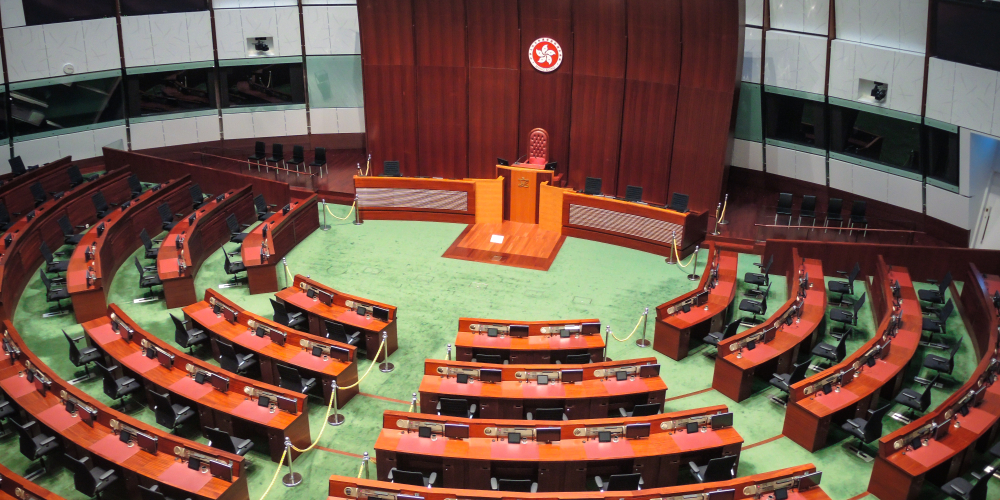The ousting of four pro-democracy lawmakers from Hong Kong’s legislature was “the right medicine” for the city, China said, telling foreign governments the issue was none of their business.
Fifteen politicians vowed to quit in anger after their colleagues were removed on national security grounds by the Beijing-appointed chief executive, boosting fears that the room for dissent in Hong Kong is shrinking.
Millions of Hong Kongers took to the streets last year in months of disruptive protests over ebbing freedoms. Demonstrations were stamped out by the pandemic and a swingeing new law that made certain opinions illegal overnight.
The expulsions this week were “the right medicine that will start a new chapter in ensuring smooth operation” of Hong Kong’s legislature, said China’s foreign ministry in Hong Kong in a statement dated Thursday.
“The decision is intended to guarantee normal operation of governing bodies… and better ensure Hong Kong is governed by Hong Kong people with a high degree of autonomy,” it said.
Britain — which handed Hong Kong back to China in 1997 — summoned China’s ambassador in London on Thursday, accusing Beijing of breaking international treaty obligations that guaranteed the financial hub special status and a high degree of autonomy.
London has increasingly locked horns with China since Beijing imposed a sweeping national security law on Hong Kong this year.
The European Union urged the “immediate reinstatement” of the lawmakers, and Canada said their ousting had the effect of “eroding human rights in Hong Kong”.
China pushed back at the criticism, telling a “handful of foreign politicians to grasp the trend of the times, keep their hands off China’s internal affairs, stop meddling with Hong Kong affairs in any form, and avoid going further down the wrong path.”
London has already angered Beijing by offering Hong Kongers holding British National Overseas passports a route to UK citizenship by relaxing entry and residency requirements.
Hong Kong’s leader is chosen by pro-Beijing committees, but half of the legislature’s 70 seats are directly elected, offering the city’s 7.5 million residents a rare chance to have their voices heard at the ballot box.
The expulsions and resignations will leave just two legislators outside the pro-Beijing camp, both of them unaligned with either bloc.
– AFP





